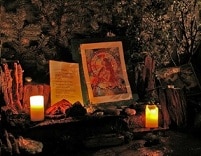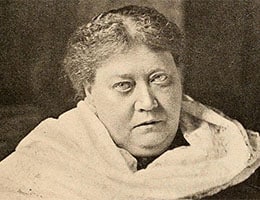 A spiritual and cultural movement with multiple expressions is known as new age (or new era , in our language ). Its name is linked to the Age of Aquarius , an astrological age.
A spiritual and cultural movement with multiple expressions is known as new age (or new era , in our language ). Its name is linked to the Age of Aquarius , an astrological age.
For astrology , an era is equivalent to about 25,776 years , which is the time it takes for the arc of the Earth 's axis to move thirty degrees. There are those who think that humanity is already living in the Age of Aquarius , while others maintain that this era has not yet arrived.
The new age movement affirms that the Age of Aquarius (the "new age" ) will bring well-being and peace to human beings. Thus the violence and wars associated with the Age of Pisces will be left behind.
According to the new age, this astronomical particularity influences people. In this framework, the followers of this current develop everything from pseudoscientific practices to mythological or religious cults, combining different philosophical ideas and ideologies. Alternative medicines , esotericism and the occult , for example, enter this cocktail.
Although it lacks a specific doctrine and organization, the new age movement usually promotes astrology , divination and other disciplines far from science and reason . It tends to reinterpret the precepts of the best-known religions and introduces elements linked to spiritualism .
Meditation , acupuncture , reiki and tarot are also part of the new age sphere. There are gurus and thinkers who are often mentioned as leaders or promoters of this movement.
The history of the new age is not completely defined, although some of its promoters are convinced that its origins are located in certain traditions of religion and philosophy, both Judaism and Christianity or the cultures of the Middle East. In addition to Buddhism, Hinduism and occultism, some of the antecedents of these ideas were expressed through organizations, such as the Theosophical Society , or even written works, an area in which authors Helena Blavatsky and Alice Bailey stand out.
The fraternity known as the Theosophical Society was founded in 1875 in India and had an international character. The teachings and doctrines disseminated by its members are part of the so-called theosophy , the name given to it by Helena Blavatsky, the aforementioned Russian writer and occultist, born in 1831, who wanted to find "divine, hidden or spiritual wisdom."
 Alice Bailey was born in 1880, in the United Kingdom, and in her youth she joined the Theosophical Society, through its headquarters in Los Angeles, United States. Although he shared his ideas about theosophy with the organizers, in 1919 he decided to follow his own path without the obligation to submit to the hierarchy that they imposed on their disciples. It was then that he began to write Human and Solar Initiation , a work that he claimed had been dictated to him by someone telepathically.
Alice Bailey was born in 1880, in the United Kingdom, and in her youth she joined the Theosophical Society, through its headquarters in Los Angeles, United States. Although he shared his ideas about theosophy with the organizers, in 1919 he decided to follow his own path without the obligation to submit to the hierarchy that they imposed on their disciples. It was then that he began to write Human and Solar Initiation , a work that he claimed had been dictated to him by someone telepathically.
Among the principles exposed by these people that we can consider precedents of the current new age doctrine are the following:
* approaches to spiritual matters. They are sometimes called Gnostic , but the correct term is Neo-Gnostic since they are certain religious movements that emerged in the 19th century;
* channeling carried out by clairvoyants and spiritual readings, to get in touch with the afterlife;
* televiewing and clairvoyance, that is, the strange ability to perceive information about events that will take place in the future;
* mesmerism, the doctrine that spoke of an ethereal medium capable of curing all ills through supposed "animal magnetism."
In the field of music , finally, new age is called the genre whose compositions are usually used for meditation, in yoga classes or in massage sessions. These are melodies that aim to promote relaxation .
